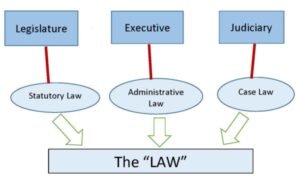Comprehensive Overview of Law Programs in the United States
The pursuit of legal education in the United States offers a diverse and intellectually stimulating experience for individuals aspiring to become legal professionals. Law programs in the U.S. are known for their rigorous curriculum, distinguished faculty, and a wide array of specialized fields. In this detailed guide, we delve into the key components and characteristics of law programs in the U.S.

1. Undergraduate Preparation: Before entering law school, aspiring legal scholars typically complete an undergraduate degree. While there is no specific required major, students often choose fields such as political science, history, or philosophy. Strong academic performance during undergraduate studies is crucial for admission to reputable law schools.
2. Law School Admission Test (LSAT): The Law School Admission Test (LSAT) is a standardized test that assesses essential skills, including critical thinking and analytical reasoning. Almost all law schools in the U.S. require LSAT scores as part of the admission process. Prospective law students dedicate significant time to LSAT preparation to enhance their chances of gaining admission.
3. Juris Doctor (JD) Program: The Juris Doctor (JD) program is the primary professional degree for lawyers in the U.S. Typically spanning three years, the JD program combines theoretical legal education with practical experiences. Core subjects include contracts, constitutional law, criminal law, and legal research and writing. Students often have the opportunity to choose elective courses based on their areas of interest.
4. Specializations and Concentrations: Law schools in the U.S. offer a wide range of specializations and concentrations, allowing students to tailor their education to specific areas of interest. Common specializations include environmental law, intellectual property law, corporate law, and criminal law. Specialized coursework and experiential learning opportunities contribute to expertise in these areas.
5. Clinical Programs and Experiential Learning: Many law schools emphasize hands-on learning through clinical programs. These programs provide students with the opportunity to work on real legal cases under the supervision of experienced attorneys. Experiential learning components, including internships and externships, allow students to apply theoretical knowledge in practical settings.
6. Moot Court and Mock Trial Competitions: Participation in moot court and mock trial competitions is a common feature of law programs. These activities simulate legal proceedings, allowing students to develop and showcase their advocacy and litigation skills. Successful participation in these competitions enhances a student’s legal resume and can open doors to future opportunities.
7. Legal Research and Writing: Legal research and writing are integral components of law programs. Students learn to analyze legal issues, conduct thorough research, and articulate their findings through legal documents. These skills are essential for effective legal practice and are honed throughout the JD program.
8. Bar Exam Preparation: Completion of the JD program is followed by preparation for the bar exam. The bar exam is a comprehensive test that assesses knowledge of state-specific and general legal principles. Successful passage of the bar exam is a prerequisite for obtaining a law license and practicing law.
9. Networking and Professional Development: Law schools facilitate networking opportunities through events, alumni connections, and career services. Students are encouraged to engage with the legal community, attend conferences, and seek internships to build a professional network that can be instrumental in their future careers.
10. Post-Graduate Opportunities: Upon earning a JD degree and passing the bar exam, graduates have various career paths available. These include working in law firms, government agencies, corporate legal departments, public interest organizations, or pursuing further specialization through advanced degrees.

The journey through a law program in the United States is a comprehensive and transformative experience. From rigorous academic study to practical experiences, the U.S. legal education system prepares individuals for diverse and rewarding careers in the legal field. Prospective law students should carefully consider program offerings, faculty expertise, and experiential learning opportunities when choosing the path to their legal aspirations.










